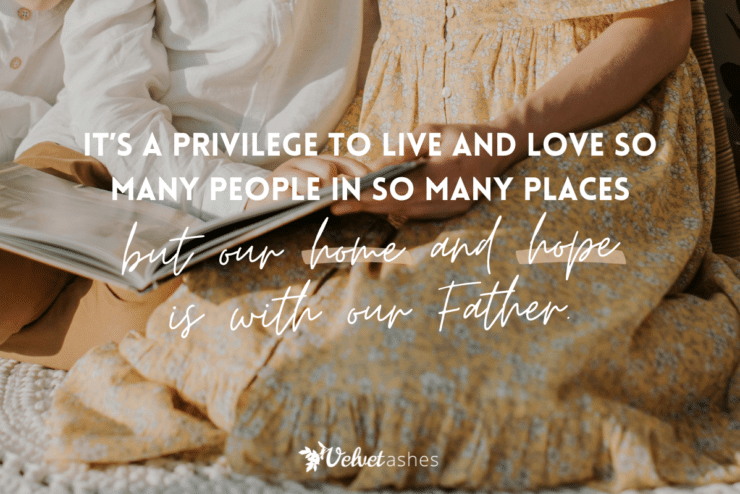The Christmas-y pillow with a snowman looked vaguely familiar as I picked it up from the sofa in the community room. Then I saw the name fixed securely in the corner with laundry tape: Amanda Stauffer. My mother’s name. She passed away at this facility about three years ago fighting Alzheimer’s that robbed her of memory and then finally, of earthly life. We had donated some of her things and apparently this pillow had been stashed away with the holiday decorations.
Working among dementia sufferers this past year, I have seen my mother reflected in the residents’ words and behavior. I remembered my mom chatting away with nonsensical grammar and words and even some Pennsylvania Dutch words that left the listener confused and a bit amused. And yet she could sing old hymns verbatim from memory. She also could get angry and frustrated, striking out at staff and residents. She also the habit of stuffing all kinds of items in her pockets or down her pants which made for some interesting stories for nurses to share among themselves.
Spending time in this secure unit, I took note of the visitors who came to see their loved ones. Some came regularly. Some only came at holidays or not at all.
And it would hit me… a few years ago I WAS that visitor who rarely came. The daughter of Amanda. And when I did come, I would appear often for a short time and then disappear for a very long time.
The daughter who didn’t visit.
The regular staff would know I was the daughter who lived overseas. But others wouldn’t know that. Other staff and visitors wouldn’t know that. My brother and sister-in-law visited and took care of the legal and paper work and meetings, but I didn’t come.
Did I feel guilty? Do I feel guilty, now? I suppose I do, at times.
Yet every step and decision along the way concerning the care of our mother, I saw God’s provision.
We knew our mother was having some cognitive problems some years ago, but we didn’t know how severe and we didn’t know much about Alzheimer’s, even though we had elderly relatives who had it. However, in 2009, when I was back in the USA, my brother and I knew something had to be done. I am grateful for a God of mercy who provided a place for our mother and adequate finances.
I returned overseas, while taking yearly trips back to see her. Initially I was able to connect with her through weekly phone calls, but eventually she was no longer able to communicate that way.
In God’s plan, I returned to the states in the summer of 2014 after 30 plus years in overseas work. And in God’s plan for my mother’s life on earth, I was able to see her regularly before she died. I was even able to be with her as she drew her last breath.
Many times I have reflected upon the decision to have our mother in a facility rather than take care of her myself. What is the right daughter thing to do? Has the Asian value of filial piety become a part of my own values? Everyone may have a different answer to that and each one must search God’s heart and plan in the matter. We are commanded to respect our parents and take care of them.
But in all honesty, I really believe that my mother would not have wanted me to stay. She was always supportive of me and what I did, even though I can’t say we had a real close relationship. In fact, I could see her getting quite upset with any suggestion that she could not take care of herself. Even as Alzheimer’s continued to kill her brain cells and unharness her repressed emotions, I can envision my mom’s eyes flashing, fists clenching and maybe with a hint of smile, insisting she doesn’t need me to help her out!
I know many people become caregivers because of financial reasons and they have no choice, and God is with them in that decision. And I do have regrets and wish I would have had more time with her. I would have also done some things differently. That is true, and that is life. But I know some day I will see her again and she’ll be whole. And we’ll have eternity to spend together in heaven with Jesus.
No regrets, no guilt… no Alzheimer’s.
Do you have a parent, a loved one dealing with Alzheimer’s? How do you handle it?
Photo by Sharina Mae Agellon on Unsplash





Had and have many of these same feelings as last year my parents moved out of their home of over 50 years and into assisted living. My mother’s Parkinsons made it impossible for them to continue living at home. I was able to visit two months later to see them and help my sister (who lives near them) clean out the family home. For now, I can call on a weekly basis, but I always feel like “the daughter who is not there for them”. My sister has to take off work for doctor appointments and recent surgery and I am nowhere to be found.
I believe that God has called me and my husband to be where we are at the moment, but that doesn’t negate the feelings of guilt and concern. I am thankful that they are in a very nice place, that they are able to be together, that I can speak to them often and that my sister is nearby, but it’s still difficult.
Deanne, thanks for sharing. Yes, it is difficult! And God wants us to be honest with those feelings and cry out to HIm. Your concern for your folks is clear evidence how much you really do love them. I hope you have a good relationship with your sister and that you can affirm and encourage her in her caregiving role. I confess I really don’t know what all my brother and sister-in-law did for my mother (and also for a special needs sister of ours who has passed away) and I know they did a lot but I was thankful for their support for my overseas life. I trust your sister is the same way. And also I trust you have other friends who encourage you as you seek God’s comfort and will. Thanks again, Deanne, for writing!
Joyce, thank you for sharing this story and the very real tension of caring for our families and serving overseas! My grandpa suffered from Alzheimer’s and I am so grateful for the healing and wholeness and hope of heaven! I wasn’t overseas yet when he passed away, but living in another state and it was hard to watch from afar for much of that time. I appreciate your honesty and the hope you offer in this post.
Sarah, see my reply below… I hit the wrong button!
Thanks, Sarah, for sharing. It is very sobering to realize almost everyone knows of someone suffering with Alzheimer’s whether that person is a loved one or an acquaintance. No one seems to be untouched. And perhaps because of that not only can we Jesus-followers learn more about it but also help and support those who face it, live with it, and/or have to make decisions in response to it. I’m sorry for the grief you felt with the gradual loss of your grandpa, Sarah. May we be comforted.
Wow, Joyce. I am the daughter who visits and I still feel guilty! This disease is difficult no matter who you are or how much time you spend with them. Mom disappears more and more…such a devastating thing to watch. But, I too am amazed that when I bring her into a spiritual track in her mind, she is full of wisdom, can sing hymns and discuss scriptural concepts. I have been encouraging her to listen to good sermons, worshipful music and I made her scripture cards in bigger print to read. Thanks for sharing your insights!
Barb, it IS hard, isn’t it? That “disappearing more and more” is so difficult to handle. It’s a continual loss and letting go, offering no closure for your grieving heart. Cherish those moments of clarity and even humor. And, isn’t it beautiful to see how how her soul is still filled with scripture and music and wisdom?I know music is one of the most powerful ways of connecting with dementia-sufferers– hymns and other old songs. The memory of melodies and lyrics with connected emotions and even physical motions (for those who danced) are found throughout the brain. So even though Alzheimer’s and other dementia causing diseases/conditions may only affect a certain part of the brain (at first) , other parts of the brain are not affected. So musical memories will continue even until later stages of the disease. And also memorized Scriptures (as well as poems and idioms) and prayers especially if there is a rhythm will be remembered and be able to be articulated even when normal speech patterns are gone. Barb, enjoy your visits and even when you’re there just holding her hand and she may not know you or reject you, be assured that she truly does love you and she wants her daughter. May you have many special moments ahead– ones you will cherish. And don’t feel guilty! Your mom is loved by our God!